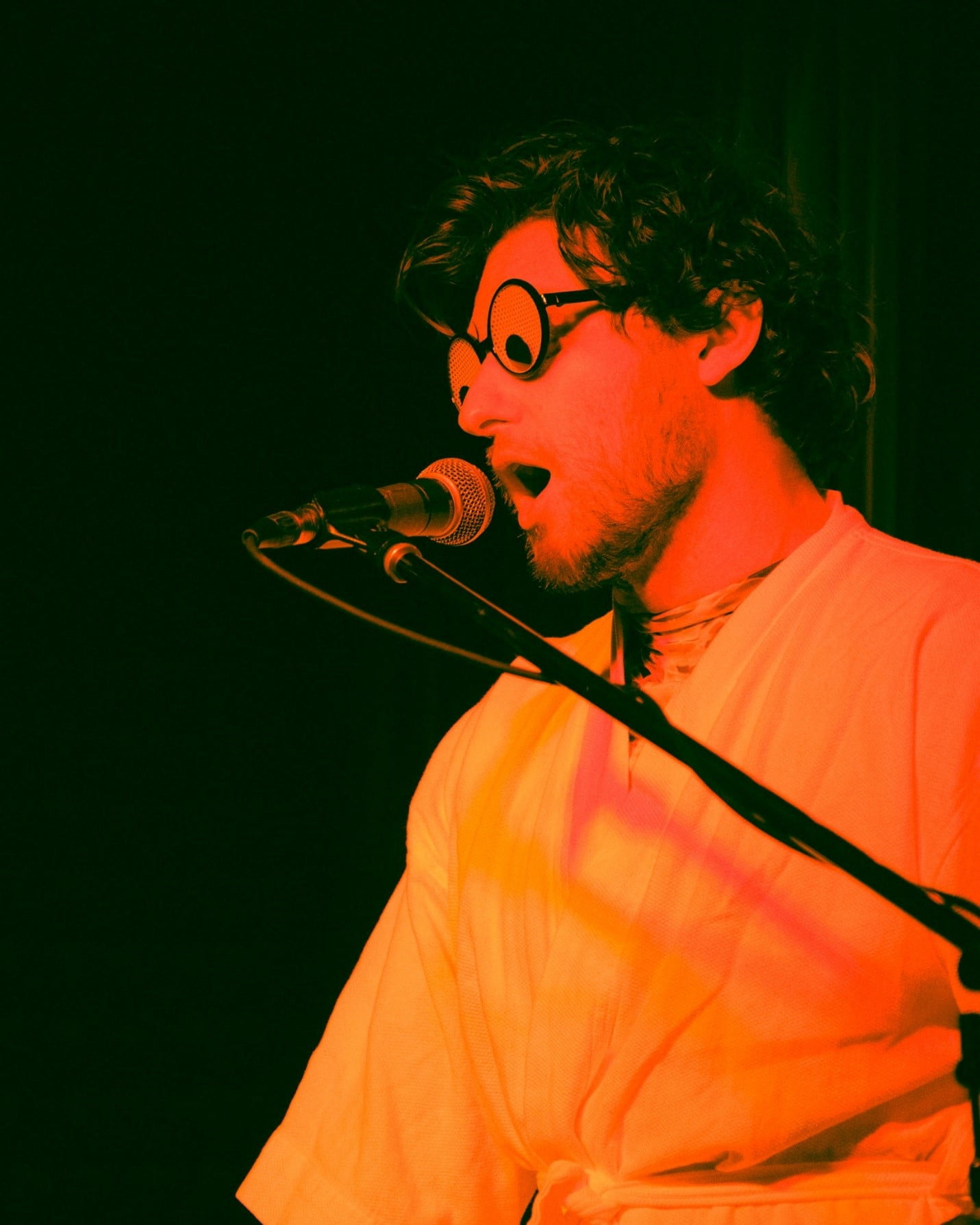A project by producer and video director Mike Mytnick is called Marottes (rhymes with carrots). With roots in Cleveland, Ohio, Marottes creates an evocative dreamscape by fusing his eclectic, self-discovered sound with his visual artistry. The motivation behind Marottes is to inject some magic into life’s conundrums, much like a deck of tarot cards. Along with the sounds, Mytnick also produces and directs the music videos, working with a variety of partners to create a unique element unique to the project’s artistic vision and inspiration. The avant-garde dance video for the song’s title, Languishing, features bedding that comes to life, and the video has received praise from audiences all over the world for the skill and occasionally strange visual elements (ranking at the Global Music Awards and New York Movie Awards in 2022). At festivals like the Chicago Indie Film Awards, Munich Music Video Awards, and London Music Video Festivals, Empath, Be My Moon, and Danse—which features dancing skeletons, melting ice cream, and aliens—have all been recognized and placed with awards.
Has time since March 2020 been strange? You’re not depressed but don’t want to overwork. It’s called languishing. Languishing means being stuck in an unwanted situation, like being inside while the world burns and pandemics rage. The new EP Languish delivers 6 songs inspired by uncertainty and isolation. It tells the story of this collective shift inward through synthwaves and synthpop. Languish’s release is accompanied by monthly remix collaborations with artists like Wander (Cleveland), JUST PROCESS (Philadelphia), Mordaga (Asheville), Psychoid (Chicago), Sacred Canopy (Vermilion, OH), and more.
Marottes’ new EP Languish was made available digitally and on vinyl on October 6, 2022. Marottes combines a self-discovered eclectic sound with visual art to create an evocative dreamscape. He adds magic to life’s quandaries, like tarot cards. It helped him navigate “unprecedented” times, and he hopes it can help you do the same. This music was written for you when you were stuck, scared, or daydreaming. Check out the EP and the exclusive interview below:

1. Can you tell us a bit about where you come from and how it all got started?
MAROTTES: I think it was when I was a zygote just floating around in space I could hear my mom and dad playing 80s pop rock cassettes and knew that one day I’d be compelled to make music.
I grew up in the greater Cleveland area, minutes from Lake Erie. I started learning music when I was a kid through various choirs and ensembles.
Music was an off and on outlet throughout my life but I switched more to focusing on video production and visual arts as I made my way through school and eventually to New York City. Music was always in the back of my mind but I wanted to make sure I was spiritually, emotionally, and financially ready to focus on it in tandem to being a filmmaker.
2. Who were your first and strongest musical influences and why the name ‘MAROTTES’?
MAROTTES: The first and strongest is definitely music from Sonic the Hedgehog and Legend of Zelda games.
I can recall some of my first memories of music by being in the car listening to cassettes my parents would play when we’d drive around on camping trips. Those would range from Aqua, The B-52’s, Billy Idol, Madonna, Sade, Ace of Base.
For the name, a ‘marotte’ was the sceptre a jester had. On the sceptre were carved miniature faces. You can see them in a lot of old art and tarot. I felt the name encapsulates my vision as an artist, which is that the music and visuals are my own ‘marottes’ and that it can be any emotion or any genre. Marottes is a both an idea and a character meant to be an allegorical reflection of the human experience.
And also because jester’s usually wore fun tights and I want to wear fun tights.
3. What do you feel are the key elements in your music that should resonate with listeners, and how would you personally describe your sound?
MAROTTES: I think the key part of my music right now is that it’s both cinematic and a little bit lo-fi. I have had people tell me it feels like they’re on an adventure in a video game or in a suspenseful movie.
I am still working on how to describe my own sound. Sometimes I tell people to imagine if John Carpenter did the score to a Renaissance painting or if the character from a tarot card wrote a pop song.
4. For most artists, originality is first preceded by a phase of learning and, often, emulating others. What was this like for you? How would you describe your own development as an artist and music maker, and the transition towards your own style?
MAROTTES: What’s fun about music is that it’s sort of this ongoing collaborative effort we have as humans. We have motifs like the Dies Irae going back centuries and also being the core of movie scores like Star Wars or The Shining. I think what’s been fun is that sometimes when I try to emulate someone using the instruments and skills I have, it comes out sounding completely different and then from there I can feel out my own perspective.
Nerd talk: I made an entire song trying to emulate the Stone Tower Temple theme from Zelda Majora’s Mask but the end result was so different that I don’t even think anyone would realize the connection between the two without me pointing it out.

MAROTTES:
Fundamentally, I think music is magic and one of our strongest ways to communicating the human experience. You can convey an entire emotional story without a single lyric.
Music can be both entertainment and socially important or neither at all. I think capitalism and the attention economy affect our society’s perception of what determines if music is ‘good’ or not. If we had more passive exposure in our day-to-day to various genres, artists, and styles of music, we would be living in a more empathetic society.
In my own work, I’m always going to follow the feeling first and let that dictate if it should be personal or pointed. Languish was written vaguely about the pandemic, but I also want to make music in the future that’s a bit more fun and mysterious, something like Marie Antoinette eating Chipotle at the mall before it closes. But I don’t have an agenda either way.
6. Could you describe your creative processes? How do usually start, and go about shaping ideas into a completed song? Do you usually start with a tune, a beat, or a narrative in your head? And do you collaborate with others in this process?
MAROTTES:
A lot of my ideas come right before I fall asleep or when I’m walking around a museum looking at old art, there’s just something about those stoic faces and ugly renaissance babies that inspire me!
For songwriting, it’s different every time and similar to sculpting. When I wrote, Languish, I had a story in mind and paired each song with a tarot card I thought expressed the idea I had best. When it comes to making a song, sometimes it’s the lyric, but I would say it’s primarily me playing around with a synth to find the feeling and then writing a lyric after.
A few of the songs I’ll start with a borrowed note motif or elements from some of my favorite video game music (the Song of Storms from Zelda games in particular was the basis of my track ‘See Mee’).
I have a very close few people I will share ideas with in the process but I try to remain private as much as I can so I don’t lose track of that gut feeling.
7. On the contrary, what would you consider a successful, proud or significant point in your life or music career so far?
MAROTTES:
Just being able to produce music so far amidst a pandemic to tell my first story plus putting it out not only digitally, but on vinyl has been the most proud work I’ve done. I’m ready to put it into a live show and work towards making more music.
8. With social media having a heavy impact on our lives and the music business in general, how do you handle criticism, haters, and/or naysayers in general? Is it something you pay attention to, or simply ignore?
MAROTTES:
It’s a constant reminder that at the end of the day, nothing matters. I’ve had a much better relationship with social media by viewing it as a tool and not a place to hangout. I’m still finding my audience on social media but hopefully I’ll have lots of haters.
9. Creative work in a studio environment, or interaction with a live audience? Which of these two options excites you most, and why?
MAROTTES:
I am playing my first shows this October, so we’ll see. I love the idea of live performance, however, with my production and filmmaking mindset I see myself more as a director. I’d like to make productions in the future that create a cinematic experience for a live audience.
10. Do you think is it important for fans of your music to understand the real story and message driving each of your songs, or do you think everyone should be free to interpret your songs in their own personal way?
MAROTTES: Not always. While I think it can be helpful to know that Languish was written as a means of understanding the last few years, which was different for everyone, Having less context is probably more helpful for the listener to experience whatever emotions come up while listening.
Languish, was written in the midst of the pandemic while I was trying to process my own feelings it was putting me through, but it’s vague enough so that someone else might listen to it in 50 years and associate it with whatever world ending scenario they are caught in or maybe it’ll be helpful for someone who just got the news that they will need adult braces. I like when things can have several meanings.
The story of Languish is kind of like you were out all night but when you left the club you start to realize the world you walked out into isn’t the same as it was at the start of the night.
Until we’re not caught in some sort of calamity I’ll probably still be using art to process it.
KEEP IN TOUCH:
FACEBOOK | INSTAGRAM | SPOTIFY | BANDCAMP | WEBSITE

Photo credits: Max Louis Miller, Austin Ruffer, Courtney Emery
